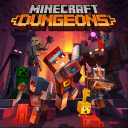Redefining Horror: The Power of Human Connection in Still Wakes the Deep
Jul 31, 2024
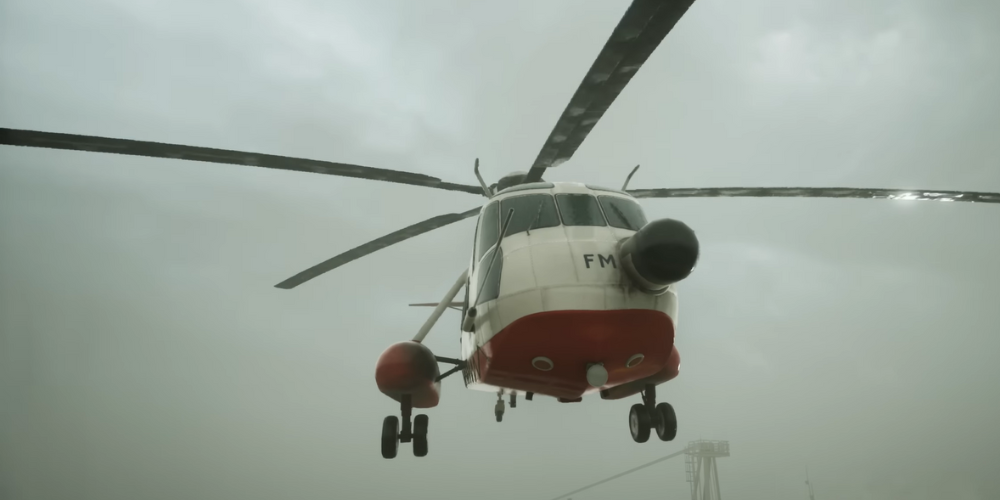
Putting players in the shoes of an engineer tasked with heading alone into a dark basement to restart an ailing generator is a tried-and-true trope in horror video games. While "Still Wakes the Deep" has a lot that's very familiar to horror fans, it's what it does with this trope of making you the poor lone sucker who needs to flip all the switches and face all the danger to do it, that sets it apart from a field of horror titles. Other games could learn from what developer The Chinese Room does with what has become a very well-worn premise.
The Familiar Premise
On paper, Still Wakes the Deep is pretty standard as a horror story and highly recognizable for anyone who's played games like Amnesia: A Machine for Pigs, the developer's previous horror game. It takes place on an oil rig in 1975, and before long, spooky stuff starts kicking off. In its gameplay, Still Wakes the Deep riffs on Amnesia's formula of only allowing you to run and hide from its lethal terrors, sneaking around things that can instantly eliminate you and hoping they can't squeeze into the small spaces that you can. You can also tell where things are going the second you meet protagonist Caz, the rig's electrician--although, somewhat hilariously, The Chinese Room starts the game by immediately subverting that premise. In the first few minutes of the game, Caz defends his job, but all he can really manage is insisting, "I'm good with the lecky." You can guess pretty early on that the power is going to go out, and someone who's good with the lecky is the obvious choice to turn it back on, even if Caz is actually underqualified for the gig.
The Loneliness of the Genre
.png)
The lone protagonist facing near-certain doom to turn the lights back on has become one of the most well-worn clichés of horror gaming. Dead Space makes your engineering qualifications central to the whole game experience. In Alien: Isolation, you're almost the only competent person left alive on Sevastopol station when it comes to fixing continually faulty machinery. The Amnesia games are all about wandering alone in dark places, and the latest, Amnesia: The Bunker, makes fueling a generator a constant consideration as you explore the area and avoid the monster hunting for you. Even when there aren't fuses to replace or gas tanks to fill, horror games from Resident Evil 7 to SOMA all focus on a single idea: Stuff needs doing, and you must do that stuff. Alone.
The Subversion
Still Wakes the Deep does send you down into the depths of the oil rig to flip switches and fix machines on more than one occasion. You're often moving slowly through flooded corridors, hearing awful things slithering around in the distance before they pop around the corner, and you have to dash madly for a distant hatch, slipping through only at the last possible second. But where it challenges the trope is in the fact that you're not always alone in doing those things. In fact, you spend a lot of time with other people on the rig, who are just as competent and, in several cases, much more qualified than you are--and they're helping turn the lights back on, too. The thing that made Still Wakes the Deep work for me wasn't that it presented another foray into sneaking and hiding and hearing spooky noises in a decaying disaster zone, although those things generally work well and successfully deliver scares and tension. It was the fact that it spent so much time developing other characters, putting you in rooms with them, and sharing the workload between you. While Still Wakes the Deep doesn't functionally change the formula these horror games rely on, it puts so much focus on other people that it fundamentally changes how the game feels.
The Human Element
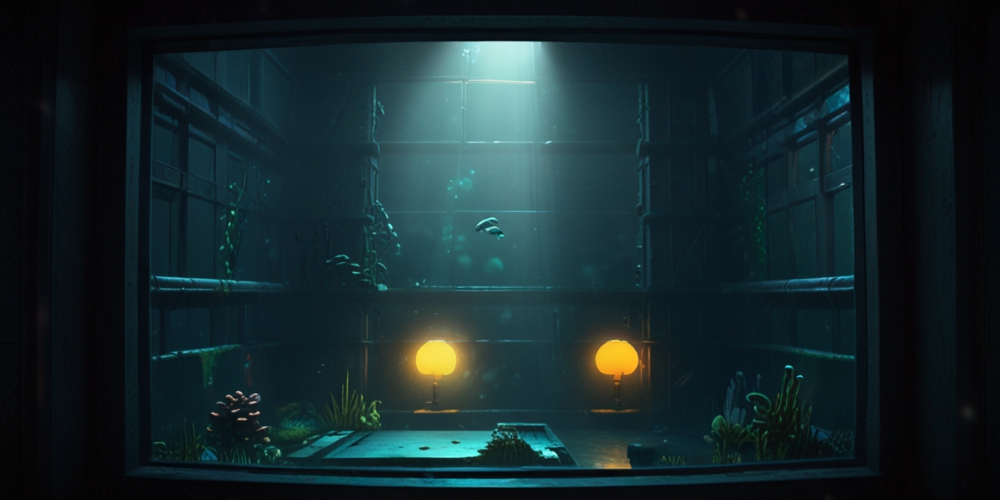
What works about Still Wakes the Deep is its emphasis on the fact that you're not alone. There are still other survivors on the rig, and they're working to save it just like you are. Two engineers, Brodie and Findlay, send you on tough missions a few times--you'll restart the rig's generator, drain the rig's pontoons to keep it afloat and relight its flame stack to keep the whole place from exploding--and it's not that different in practice from the orders you get over the radio in Dead Space or Alien: Isolation. But while you're draining two of the four pontoons, Brodie is draining the other two. When you're relighting the flame stack, he's waiting in the control room to make sure the operation is successful because he knows how it works.
In gameplay terms, you might still be doing these things alone, but Brodie or Findlay's presence in a scene changes its vibe. You're working together, you spend time with them, and thanks to a lot of well-acted, well-written dialogue, you get a sense of who they are. You care about what happens to them. This is the fundamental element that elevates Still Wakes the Deep: caring about the other characters. Much as I absolutely love both Dead Space and Alien: Isolation, neither is particularly good at characters. Every time I revisit Alien: Isolation, I find myself wishing for a version that hewed closer to the 1979 movie it's adapting, not just in visuals and gameplay but in character and storytelling. In Alien: Isolation, you're the only person who can fix anything in almost every case, and everyone else is kind of a clown. It's in the title: You're isolated against the alien for hours. At a key moment halfway through, when you return to a previously safe place to find it ransacked and many of your comrades harmed, it's really difficult to feel anything about what happened.
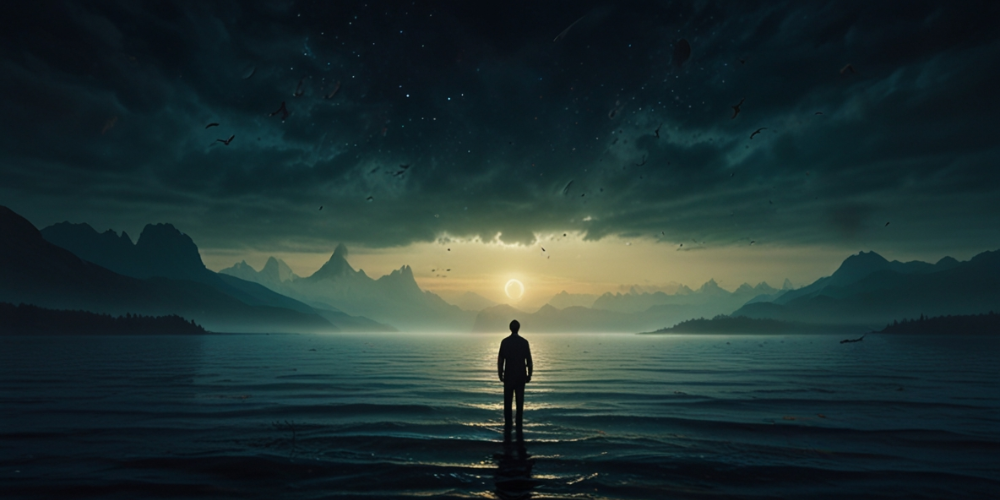
Dead Space is a little better about this, particularly with its remake version by Motive Studio, but only barely. The other characters are mostly voices on the radio, or distant people you see in tableau for a second before you go back to engineering and creature-fighting. You never have time to really bond with them, and lots of times, they stand around waiting while you head into danger. In both games, what other characters you do happen across tend to get tragically taken apart in front of you; they're a tool to show you the level of threat you're dealing with more than anything else.
The Impact of Isolation
There's a reason for this, of course. Being alone, with no one to rely on, is scary. Going long stretches wandering through empty dark halls, and then finally hearing something moving in the distance and knowing that sound shouldn't be there sends a shiver down the spine. Scenes such as chaperoning Ashley in Resident Evil 4 fail to evoke fear, just as cooperative gameplay in Resident Evil 5 does, primarily because the tension dissipates when you realize you're not facing the challenges solo. But what Alien: Isolation, Dead Space, and countless other games like them are missing is something that Still Wakes the Deep Nails, and that's the fear of what might happen to others. When a necromorph slashes apart Isaac Clark or the alien chases down Amanda Ripley, the frightening tension those games run on is, finally and abruptly, broken. As in many horror games, there's nothing to fear in either other than getting severely injured--and once that happens, the nature of games instantly demonstrates that it's nothing to fear at all. You restart from your last checkpoint and try again.
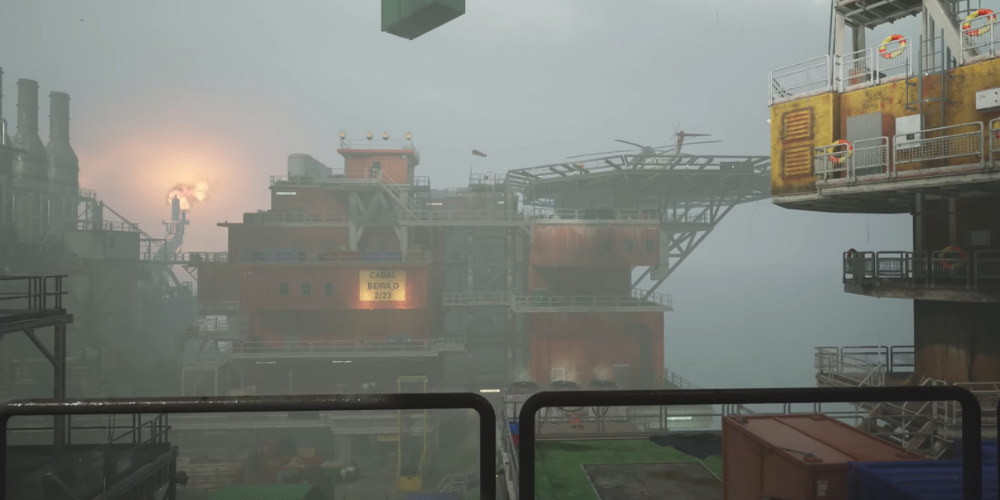
Mortality is a temporary concept in most games, and it's the presentation coupled with your suspension of disbelief that makes them scary at all. The fear of death drives these games, but actually, dying breaks the spell. In Still Wakes the Deep, spending time with other characters means you're worried about them. When you and Brodie split up to drain the pontoons, you know he's in the same danger you are. When Findlay heads out to fix a fault in the power lines so you can restart the generator, she's in the same area, with the same threat, that you are. When you spend time with other characters, when you see the relationship they have with Caz--or cultivate some of your own--you fear not just what might be waiting to get you. You fear what might happen to them.
Reevaluating Isolation
Fundamentally, I don't think the near-constant isolation in Alien: Isolation, Dead Space, or countless other games is necessary, and in fact, I think there are times when all that loneliness actively undercuts them. Isolation isn't the only tool these games can use on players, and yet it tends to be the one they rely on almost exclusively. Horror movies, to borrow an example from another medium, function on presenting things that happen with so much distance from the audience that they personally are no danger, but we can still find them frightening. They're scary because of our empathy because humans are social creatures. Horror games can make the scary things much more immediate, but a lot of them are missing out on that huge piece of the human experience with horror. Still Wakes the Deep shows that being alone isn't always essential to making horror scary in video games. It can be just as unnerving knowing that when the thing isn't chasing you, it's because someone else has caught its attention.






